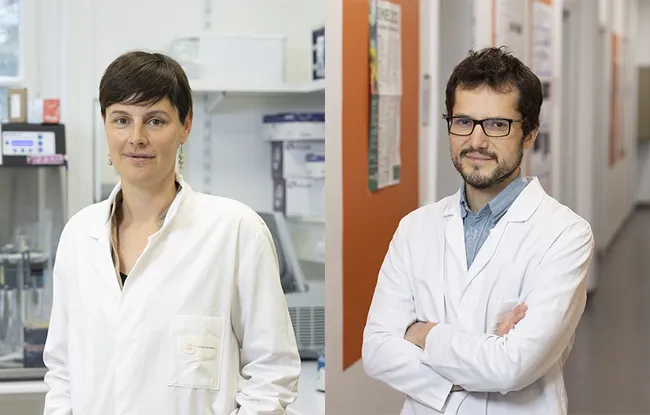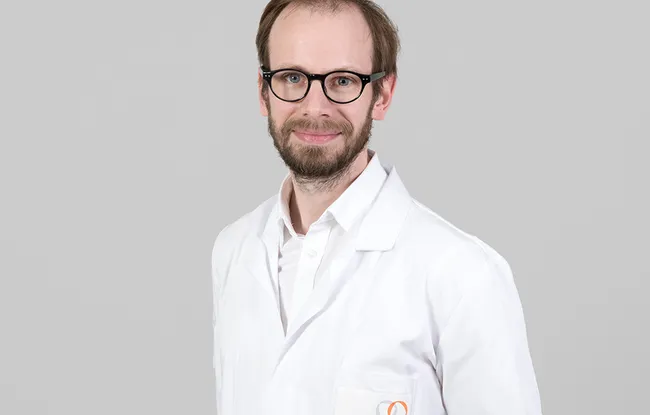- Home >
- Institut Curie News >
- Congratulations to Leïla Périé and Antoine Coulon, winners of the CNRS Bronze Medal 2023
Announced on April 3, 2023, one of the CNRS Bronze Medals 2023 went to Leïla Périé. CNRS Research Director and head of the Quantitative Immuno-hematology approaches team, in the Physical Chemistry Curie unit (CNRS UMR168/Sorbonne University) at Institut Curie’s Research Center, for the work she has begun on white and red blood cell production. This award is an encouragement from the CNRS to continue the research already underway and bearing fruit.
Scientific director of the CurieCoreTech - Custom Single cell omics platform and joint Coordinator of the Single Cell initiative, along with her team and the support of these platforms she is seeking to a quantitative understanding of how the physiological process of blood cell production (hematopoiesis) operates under conditions of homeostatic, infection and cancer. It combines experimental and computational approaches at the single-cell level in humans and animal models. In particular she uses barcoding cellular methods that help track the descendants of individual cells. These innovative methodologies enable her to study hematopoiesis not just in animals but also in humans.
Her work has been supported since 2018 by the ultra-selective Starting Grant from the European Research Council (ERC).
I am immensely proud of this medal for my teams and for myself since it strengthens our determination to continue our research off the beaten path
Explains Leïla Périé.
Also winner of a CNRS Bronze Medal 2023, Antoine Coulon, head of the Genome functions in Space and Time team (Nuclear dynamics (CNRS UMR3664/Sorbonne University) and Physical Chemistry Curie (CNRS UMR168/Sorbonne University) units), is also recognized by the CNRS for his innovative research.
With his interdisciplinary team at Institut Curie’s Research Center, Antoine Coulon studies the spatial organization and dynamics of chromosomes in the cell nucleus, and the role of this organization in regulating gene expression. His team combines microscopy techniques used to visualize individual molecules (RNA, proteins), with chromosome micromanipulation techniques and physical modelling approaches.
His work allowed for the first time to physically manipulate a chromosome in a living cell. By applying force to a chromosome using magnetic nanoparticles, this approach revealed that, during the interphase, chromosomes are remarkably fluid and not restricted by their environment inside the nucleus. These important results, combining physics and biology, have changed the way we see the chromosome.
In 2018 he also received the prestigious Starting Grant from the European Research Council (ERC).
This medal is for me the recognition of an interdisciplinary work at the interface between physics and biology, involving several teams from Institut Curie and collaborators from Paris and the United States.
Explains Antoine Coulon.



